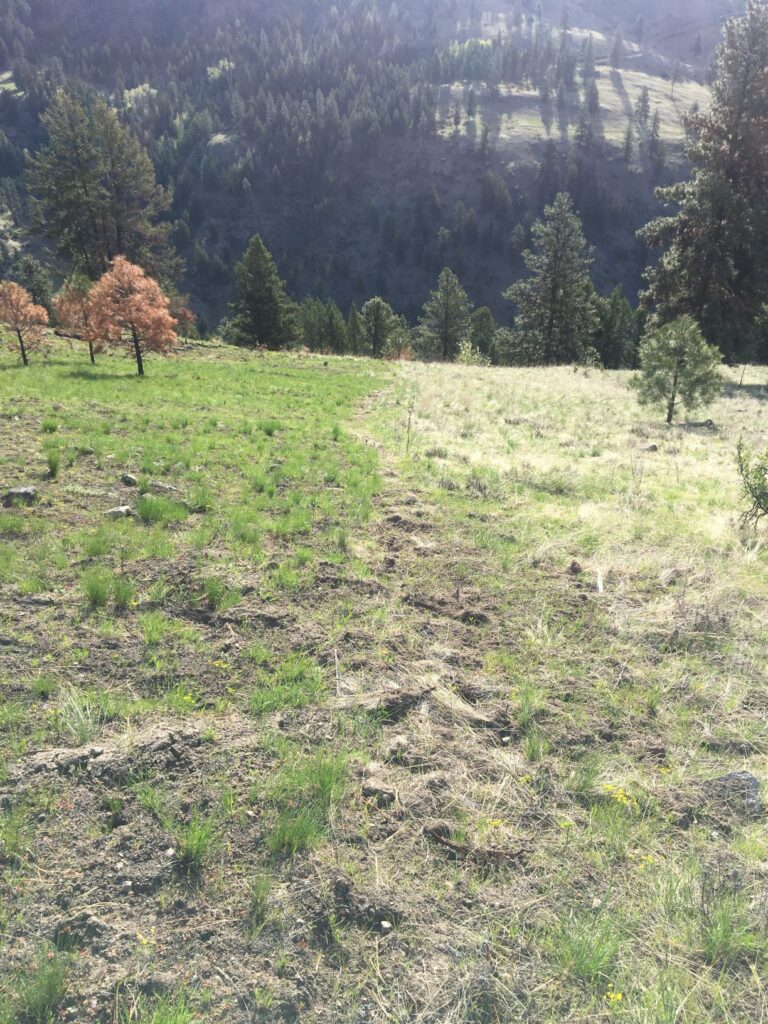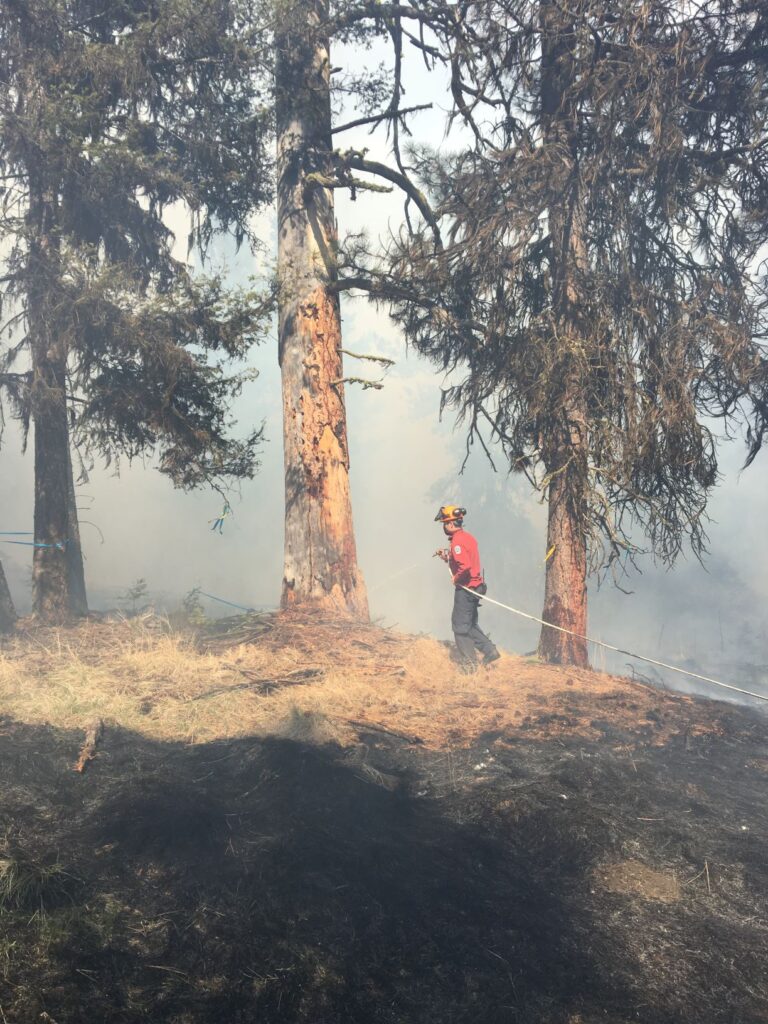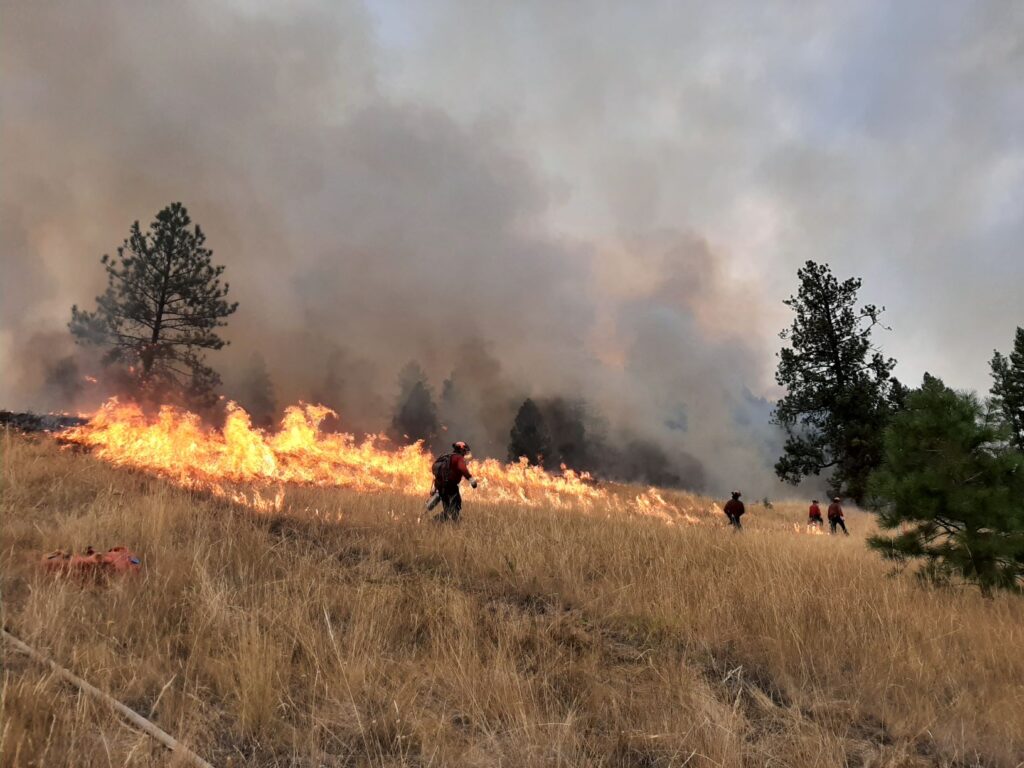Cranbrook, BC: For 40 years, the Habitat Conservation Trust Foundation (HCTF) has helped fund conservation groups, government, Indigenous Nations, and local communities to implement projects that protect B.C.’s wildlife, freshwater fish, and the habitats they need to survive and thrive. This year, HCTF awarded $9.3 million in funding for 175 individual conservation projects across British Columbia.
HCTF’s CEO Dan Buffett is pleased to report that the 2021/22 grant season represents the Foundation’s highest record annual investment and reflects the financial contributions and hard work of many British Columbians that fund and implement these projects. To date, HCTF has funded 3,230 conservation projects and granted over $195 million in funds across the length and breadth of this ecologically diverse province.
One such project is the Ministry of Forests, Lands, Natural Resource Operations and Rural Developments’ Boundary Restoration and Enhancement Program. The program, which received $67,380 in funding, aims to improve habitat quality, ecosystem resiliency and forage availability for ungulates and other native species by restoring or enhancing habitats and ecosystems. Often the final phase of treatment is the implementation of closely monitored prescribed burns. Not only does the application of controlled burns revitalize habitat conditions for wildlife species such as mule deer, white-tailed deer, elk, Williamson’s sapsucker and Lewis’s woodpecker, but it also decreases the risk and intensity of future wildfire events in the area by reducing the continuity and availability of forest fuels. Additionally, the program continues to grow the collaborations with the Okanagan Nation Alliance, Penticton Indian Band and Osoyoos Indian Band on project planning and implementation; and is partnering with all of the areas major forest licensees. The program is working with local communities in generating employment with highly skilled local contractors and improving the knowledge of controlled prescribed fire.

No burn – Lisa Tedesco Photo 
Prescribed burn – Lisa Tedesco Photo

“The ongoing funding from HCTF has been critical in the programs longevity and success” says Lisa Tedesco, Project Lead with FLNRORD. “We have restored over 600 ha (1483 acres) of low elevation open forest ecosystems with selective harvest, understory slashing, prescribed burn and invasive plant treatments and have an additional 450 ha (1112 acres), including high elevation and mixed forest stands, under prescription and ready for implementation.”

Other HCTF funded projects taking place in the Kootenay region include:
• $130,500 to support the Kootenay Region River Guardian Program which provides a compliance presence, collects angler survey data, and educates the public about sportfish populations.
• $93,500 to evaluate 15 years of conservation activities applied toward recovering a threatened grizzly bear population in the South Selkirks, co-funded by FESBC.
• $50,000 to improve wildlife connectivity and human safety along Highway 3 in the southern Canadian Rockies.
• $45,000 for invasive plant management on critical bighorn sheep winter ranges in Wigwam Flats, Bull River and Columbia Lake East, co-funded by FESBC.
• $52,150 to assists with recovery of Kootenay Lake kokanee by encouraging increased angler participation in the public fishery.
Funding and support for these projects and others across the province come from a wide variety of sources including public groups such as the British Columbia Wildlife Federation (BCWF), partner organizations like the Forest Enhancement Society of BC (FESBC), provincial government contributions, court fines, and endowments. A significant source of funding comes from the conservation surcharge paid by B.C.’s anglers, hunters, trappers, and guide outfitters.
“Over 40 years ago, the B.C. Wildlife Federation lobbied for a surcharge on hunting and fishing licenses to fund wildlife and fish habitat improvement projects throughout the province,” said BCWF president Chuck Zuckerman. “The result of this impassioned call from B.C.’s hunters, anglers, trappers and sport shooters formed a new fund in 1981 that subsequently evolved into the Habitat Conservation Trust Foundation.”
Steve Kozuki, executive director of FESBC, has been pleased to be a partner with HCTF.
“FESBC is proud to partner with HCTF and local experts on the ground throughout British Columbia to improve wildlife habitat,” said Kozuki. “HCTF combines wildlife biology expertise with their excellent management of funds to deliver outstanding benefits for wildlife. With all the pressures on the land base, the good work HCTF does is more important than ever.”
Each project funded by HCTF goes through a multi-level, objective and technical review process prior to final Board review and decision. HCTF’s Board of Directors ensure that species important to B.C. anglers and hunters are supported but also place a great deal of importance on conserving whole ecosystems, species-at-risk, and investing in environmental education across the province.
To see the complete list of HCTF funded projects or explore the conservation work being done near you, view the 2021-22 Approved Project List.
For Interviews:
Habitat Conservation Trust Foundation
Craig Doucette, Communications Officer | Direct: 250 940 3012 | Toll-free: 1 800 387 9853 ext. 212 | Craig.Doucette@hctf.ca
Forest Enhancement Society of BC
Aleece Laird, Communications Liaison | Direct: 250 574 0221 | communications@fesbc.ca
HCTF Quick Facts:
It is the mission of HCTF to improve the conservation outcomes of B.C.’s fish and wildlife, and the habitats in which they live. We make a difference by funding conservation projects and by educating and engaging the public about B.C.’s natural assets. 2021 marks HCTF’s 40th anniversary of helping conservation groups and individuals secure funding for conservation projects and providing education to the general public about B.C.’s important natural assets. Since 1981, HCTF has provided over $195 million in grants for 3,230 conservation projects across B.C. HCTF began as an initiative by B.C. anglers, hunters, trappers, and guide outfitters.
